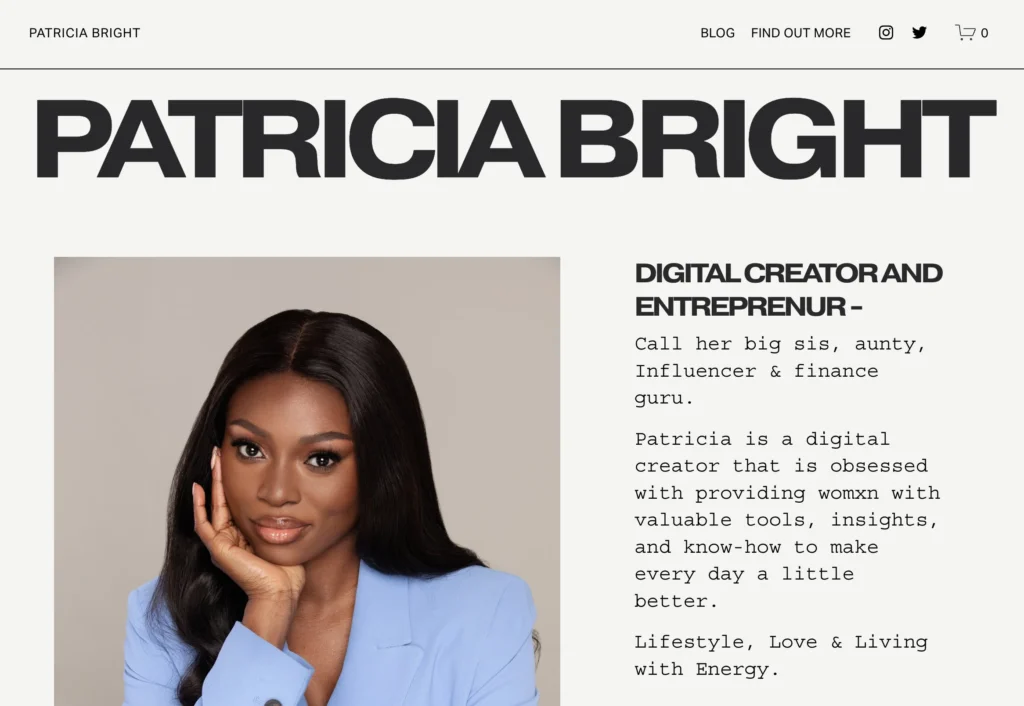- Willem Jans
- Brand Building, Brand Development, Brand Identity, Brand Name, Brand Power, Branding Strategy, Business Success, Entrepreneur Tips, Identity Creation, Marketing Tips, Personal Brand, Personal Brand Name, Personal Branding, Professional Branding, Reputation Management, Self-Branding
- 0 Comments
- 906 Views
Whether you’re an entrepreneur, a creative professional, or simply someone looking to elevate your online presence, be aware that your personal brand name can open doors, create lasting impressions, and set you apart from the crowd. It’s your identity, your reputation, and a key factor in the success of your career or business.
But, what should you name your brand? Should you use your own name, or should you come up with something else? These are just some of the many questions people have when trying to establish their personal brand.


1. What Should I Name My Brand?
Choosing the right name for your personal brand can feel daunting because it’s one of the most crucial decisions you’ll make. Your brand name should encapsulate your personality, the values you stand for, and the services or products you offer. Here are some key tips for naming your brand:
- Reflect Your Mission: Your brand name should give people a sense of what you stand for. If you’re a coach, for example, words that evoke empowerment or transformation could be effective.
- Keep It Simple and Memorable: Short, easy-to-pronounce names tend to be more memorable. Think of global brands like Nike, Apple, and Oprah—they are concise and instantly recognizable.
- Make It Unique: A distinctive name can make all the difference. Research competitors in your field and make sure your brand name stands out. Avoid names that are too similar to existing brands, as they may get lost in the mix.
Your brand name is your first impression. Make sure it’s reflective of your passion, your expertise, and the promise you’re making to your audience.
2. Is Brand Name Really Important? Why Are Brand Names Important?
Yes, your brand name is incredibly important—it’s your identity, your promise to your audience, and the first thing people remember about you. A powerful brand name can evoke emotion, build trust, and help differentiate you from the competition. In many ways, your brand name is the foundation upon which your reputation is built. Here’s why it’s crucial:
- First Impressions Matter: Your name is often the first thing people see or hear when they come into contact with your brand. It needs to be impactful and align with the value you offer.
- Brand Recognition: A memorable brand name can stick in people’s minds and generate instant recognition. This builds familiarity and trust over time.
- Connection with Your Audience: Your brand name should create an emotional connection with your audience. Whether it’s aspirational, playful, or authoritative, the name should align with how you want people to feel about your brand.
Ultimately, your brand name is your identity in the marketplace. It can either open doors or limit your growth, depending on how well it resonates with your audience.
3. How to Introduce A Brand Name?
Introducing a brand name to your audience is a delicate process that requires careful planning and strategy. You want to make sure your brand launch creates excitement and builds momentum. Here’s how you can effectively introduce your new brand name:
- Tell Your Story: People connect with stories. Explain the inspiration behind your brand name, why it matters to you, and what you hope it will represent for your audience.
- Leverage Social Media: Use social media platforms to build anticipation and excitement around your brand launch. You can tease the name reveal through countdowns, behind-the-scenes content, or even a mini-launch event.
- Consistent Messaging: Whether you’re sending emails, posting on social media, or updating your website, make sure the messaging around your new brand name is consistent and clear. Consistency is key to ensuring your audience remembers your brand.
By making your brand introduction personal and intentional, you not only grab attention but also help establish a deeper connection with your audience from the start.
4. Should I Use A Brand Name Or My Name?
The decision to use a separate brand name or your personal name depends on the nature of your business and how you want to position yourself. Each option has its own set of advantages:
- Using a Separate Brand Name: If you’re creating a business that you envision expanding beyond yourself (such as a product line, agency, or large company), using a distinct brand name might give you more flexibility. For example, Patagonia or HuffPost are brands that have grown beyond their founders.
- Using Your Personal Name: If you’re a coach, consultant, artist, or public figure, your personal name can become your brand. People like to connect with individuals, and using your name can help build trust and establish a more personal connection. Think of Oprah, Marie Forleo, or Tony Robbins—their personal names are synonymous with their brands.
Ultimately, the decision comes down to how personal you want your brand to feel, and whether you see it growing beyond your individual identity.
5. Can I Use My Name As A Brand?
Absolutely, you can use your own name as a brand. In fact, many entrepreneurs, influencers, and creators build personal brands that center around their names. If you’re the face of your business or service, using your own name can:
- Build Personal Connections: People love to follow and engage with other people, not faceless companies. Using your name as your brand can create a sense of trust and authenticity.
- Increase Recognition: If you’re already known in your field, using your own name can help increase recognition and authority. Your name becomes your trademark.
For example, Rachel Hollis, a motivational speaker and author, has built an empire under her personal name, using it as her brand.
6. Can Your Name Be A Brand Name?
Yes, your name can absolutely be a brand name, and it often works very well for individuals who want to position themselves as experts, influencers, or public figures. Your personal name can be a powerful branding tool, especially in industries like:
- Coaching: People are more likely to hire you if they feel they know you personally.
- Public Speaking: Speakers often brand themselves with their personal name because it builds instant authority and trust.
- Creative Fields: Artists, photographers, designers, and writers often use their own name to reflect their personal style and creative identity.
When your name becomes synonymous with the value you offer, it can transform into a powerful personal brand.
7. Should I Use My Name for Personal Branding?
Using your name for personal branding depends on your long-term goals. Here are a few reasons why you might choose to brand yourself under your own name:
- Authenticity and Trust: People are more likely to trust and follow an individual rather than a faceless company. Branding yourself with your name gives you authenticity and a personal touch.
- Future Flexibility: By using your name, you give yourself the flexibility to pivot into new projects or industries without needing to rebrand.
- Positioning Yourself as an Expert: Using your name allows you to position yourself as an authority in your niche. Many thought leaders and influencers build personal brands based on their name to establish expertise.
If your business is centered around you and your expertise, using your name can be a strong branding decision.
8. Why Brand Your Name?
Branding your name is one of the most effective ways to position yourself as an expert in your field and build lasting relationships with your audience. Here’s why branding your name matters:
- Personalization: In a world filled with corporate brands, a personal name feels more human and relatable.
- Authority: When your name becomes a brand, you automatically position yourself as an expert or thought leader in your niche.
- Longevity: Even if you switch industries or create new ventures, your personal brand can evolve with you. Your name can carry you through different projects without the need for a complete rebrand.
Branding your name allows you to establish credibility, trust, and recognition in a way that is uniquely tied to you as an individual.
9. What Is A Personal Brand Name?
A personal brand name is essentially how you market yourself and your career as a brand. It’s the unique combination of your name, your values, your strengths, and the reputation you build. Unlike a corporate brand, a personal brand focuses on you—your experiences, expertise, and the value you offer.
Examples of successful personal brand names include:
- Oprah Winfrey: Her name is synonymous with media excellence and philanthropy.
- Gary Vaynerchuk: Known as GaryVee, his personal brand is built on his expertise in marketing and entrepreneurship.
- Brene Brown: An expert in vulnerability and courage, her name is her brand, recognized globally for thought leadership in these areas.
Your personal brand name becomes your professional identity, representing your values and expertise to the world.
10. What Is An Individual Brand Name Example?
An individual brand name example is when a person uses their own name or a variation of it to create a recognizable brand. One well-known example is Elon Musk, who has built a personal brand as an innovator, futurist, and entrepreneur. His name is tied to multiple ventures, from Tesla to SpaceX, and his personal reputation fuels these brands’ successes.
Another great example is Martha Stewart, who used her name to build a global brand around home decor, cooking, and lifestyle. Her name became synonymous with excellence in these areas, and the brand expanded into numerous products and media.
Wrap-Up: Crafting Your Personal Brand Name
Your personal brand name is more than just a label—it’s your identity, your reputation, and the cornerstone of your career or business. Whether you choose to use your own name or create a unique brand name, make sure it aligns with your values, your mission, and your audience’s needs.
Remember, branding is about making meaningful connections. A powerful personal brand name can open doors, create trust, and position you as a leader in your field. So take the time to craft a name that truly represents you and the impact you want to make.
Ultimately, your brand name is your legacy. Choose wisely, and let it guide you toward success.






